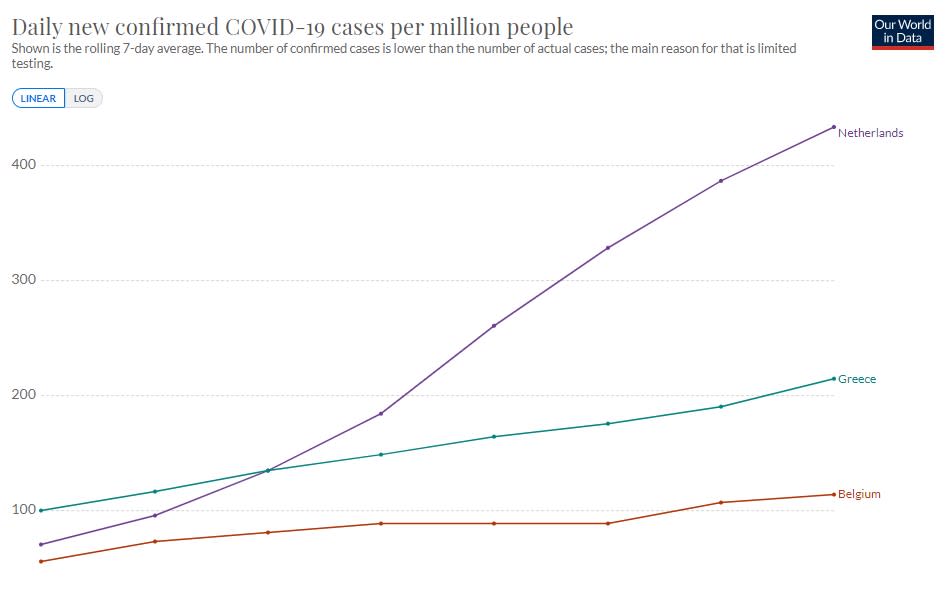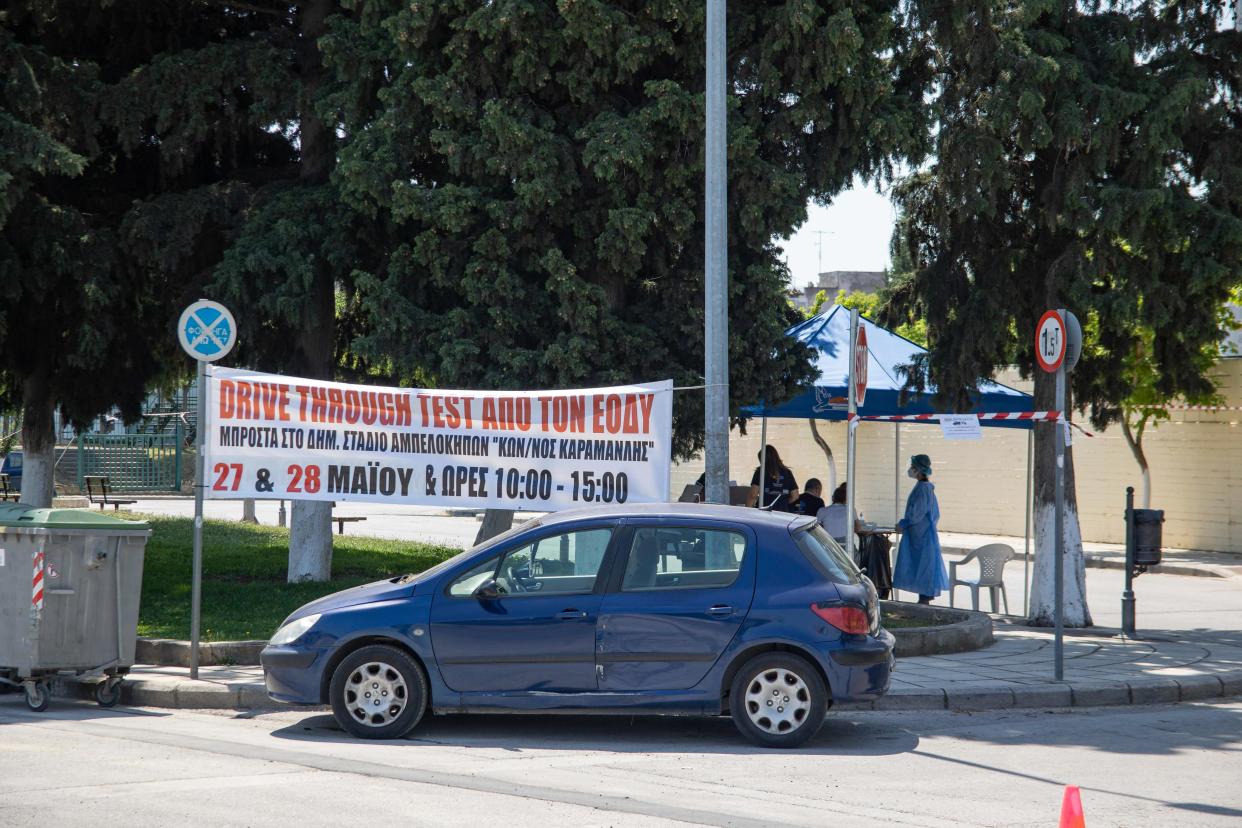Four European countries where Covid cases have doubled in a week
The Dutch Prime Minister has apologised for lifting restrictions too soon after Covid infections rocketed by more than 500% in a week.
The Netherlands is one of four European countries facing a steep rise in cases fueled by the more contagious delta variant.
Sharp increases were also reported in Greece, Austria and Belgium, with all seeing infections more than double in the most recent seven-day figures, according to Our World in Data (OWID).
On Tuesday, the figure for daily new confirmed cases per million was 433.53 in the Netherlands, 214.35 in Greece, 113.73 in Belgium and 17.8 in Austria.


The surge in the Netherlands follows the scrapping of almost all remaining lockdown restrictions and the reopening of nightclubs on 26 June.
On Friday, Dutch Prime Minister Mark Rutte reintroduced some restrictions in an attempt to rein in the soaring infection rate.
He apologised for the lockdown relaxation and called it “an error of judgment”, with statistics showing 52,000 people in the country tested positive for Covid-19 over the past week - a 500% increase in cases.
On Wednesday, new infections rose above 10,000 in 24 hours for the first time in half a year, which led to parliament being recalled from summer vacation.
Bars again have to close at midnight, while discotheques and clubs were shuttered again and work-from-home guidelines were reimposed until at least 13 August.
On Monday, restrictions will be lifted in England and some fear cases could rapidly increase when nightclubs are opened there.
The rate of Covid-19 infection is rising globally.
There were over 2.6 million new cases last week, with Europe experiencing a sharp increase of 30%, the World Health Organization (WHO) said in its latest epidemiological update.
The average daily new confirmed cases per million in Europe as a whole was 138.77, with infections increasing since mid-June, according to OWID.

Europe's drug regulator the European Medicines Agency (EMA) said on Wednesday the Delta variant will account for 90% of strains in circulation in the European Union by the end of August, with both doses of a COVID-19 vaccine needed to protect against the fast-spreading variant.
The WHO added the delta variant - first identified in India - was likely to become the dominant strain globally over the coming months.
The WHO acknowledged that many countries are now facing “considerable pressure” to lift all remaining precautions but warned that failing to do it the right way will just give the virus more opportunity to spread.
Europe is behind the UK in terms of the latest wave caused by the delta strain.
Watch: How the world could be better after Covid


